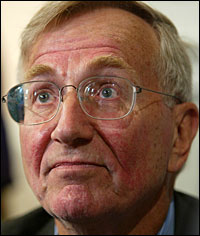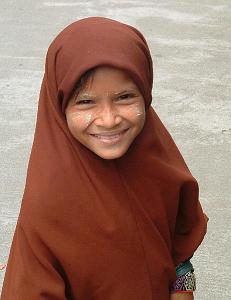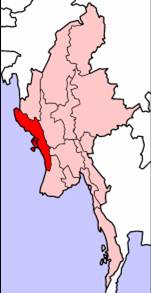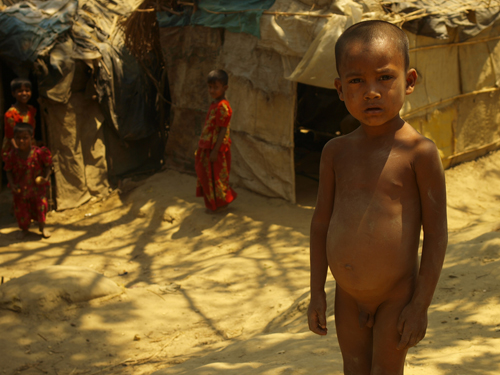Outline of a dream project - turning threat into an opportunity
We are talking about 30-35 billions of total investment over next 25 years. Start the process with very little investment at the moment. If things can be started well, in few years time, we are convinced that there will be so many interest in this project that you will have to return money from a lot of prospective investors!
This is a conceptual outline of a nation-wide project would attract billions of dollars, millions of tourists and skilled workers, thousands of experts, hundreds of companies to Bangladesh to make it a land of opportunities that would one day rival UAE and Singapore. However, these dollars, tourists, experts and companies will be a bit different in type compared to those others, we call them the version two that keeps sustainability in their mind in every step of the way.
If marketed in a proper way with the bold entrepreneurs from UAE and Singapore (who usually do not shy away from competition) with technical vetting from the experts from Netherlands (who has a track-record of making a living out of training rivers), this could add tremendous thrust to what has been achieved so far in Bangladesh.
Before going into the details, we want to empasize one thing. If the history our human civilization is any precursor, we as a species always falter before we catch up and do the right thing. With our latest mess of Global Warming, we have already completed the first part of the hypothesis, which is faltering with our actions and failing to do anything meaningful yet to freeze and reverse the warming. However, as we said, we will catch up - process of which has already started with changes of mind and hearts of millions of people around the world and soon these will be translating into actions. However, in the process of catching up, we may loose many of island states such as Maldives. This project will be able to reclaim enough land in the shoreline of Bay of Bengal that we could accomodate Maldives if such an unfortunate time comes which we hope will never occur.
Enough for introduction and motivation. Lets lay down the concept of the project. But for that you have to go at the bottom of this article and read the article from a German newspaper, specifically the second part titled "Taming Monster Rivers". We also recommend the following two institutes to start the groundwork of simulating the whole project so it can soon be taken to the drawing board.
RIKS (Research Institute of Knowledge Systems)
IWM (Institute of Water Modelling)
To start, its fitting to use few quote from the following news item if you haven't done so already.
"This island developed very recently .... the island will continue to grow."
".....sometimes finds the doomsday scenarios surprising."
In fact, hydrologically speaking the Netherlands is a country that shouldn't even exist. But skillful engineering has guaranteed the Dutch a successful existence. Polders, dikes and water-retaining structures protect its territory against the sea. According to Carvajal Monar, "this is precisely what we could do in Bangladesh, but unfortunately we're moving forward far too slowly."
Along with what is suggested here, we also want to add few things. River training mechanism should be adapted for the local terrain and situation. The techniques should not and can not be directly applied that worked for Netherlands. Thats why its important for the local researchers to get involved in a big way. The government has a big role in this.
Given the situation in Bangladesh, it seems that a distributed river training system would be more appropriate. Solar driven thousands of small pontun like sediment managment system should be deployed throughout the country. Down the stream and along the shoreline, there should be mechanisms in place that would encourage natural collection of the sediments that are coming from the Himalayas in millions of tons every year. Over the years this should enable us to push our south border in a significant way as well as build few sigficantly new islands.
However, the main focus should be to tame the rivers. Not only tame, a plan should be in place that will envision them to return to their earliers paths - where possible. This would do several miracle. Stop the creation of thousands of internal refugees. Increase the agricultural land. Stop the flood in many areas. However, this has a possible negative, too. If you can stop the flood, it would also create a problem with the fertility of the lands. So, we should take separate parallel projects that encourages farmers to use organic fertilizer in a large scale.
Reclaimed lands down south could become the world class tourist spot. If the simulations show that the reclamation and creation of the island with the sediments from Himalayas carried by these monster rivers can be projected in a reliable way, we think, there would be billions of dollars ready investment, aside from our own national investment. We could keep writing pages after pages, however, its better to leave the details for the experts. We have already mentioned two possible expert institutions who have the track-record for doing similar but smaller scale project. If the Government of Bangladesh is willing to examine the project, we would imagine that the real experts around the world will be very excited about the project.
As we have said earlier, this is project which should be treated as a strategic matter on the part of Bangladesh. And as a matter of fact, such a project would naturally require a smooth coordination among the downstream (Bangladesh) and Upstream (India, Nepal, Bhutan) countries. However, our suggestion would be to proceed with the project in a manner where we will assume total non-cooperation from India (which is usually the case). And there is no reason that we should expect that will change soon. But that should not stop us. Its easy to blame them. However, designing a system within the given realities is the job of the engineers and designers. It will be harder, but it is possible. We should go ahead taking it as a fact that India will keep doing what they have been doing with Farrakka, Ganges-Padma water sharing. Off course, things might improve over the time, so the overall design should be able to correct for that, too.
Such a project will be more than the budget of the nation, every year, spread over several decades. A rough estimate may put the whole project into 30-35 billion spread over next 20 years. Things should get clearer as we get some simulation result that incorporates real data. So, let the dream begin, soon.
Before we end, we should emphasize two supplementary projects that should follow the base level national project. A country like Bangladesh where the world's safest rivers like Meghna flows, such a country should not lift its drinking water from underground. Also, a country through which most of the waters from the Himalayas flows to the Bay, that country should become one of the world's leading exporter of drinking water.
If you thought some of the ideas are worth of your reading time, please forward it to others. If you have an ear to the columnists in regular traditional media, please forward it to them. If you have an ear to the journalists and news editors of the electronic media, discuss it with them. Hope they would look at the suggestions and give due diligence.
Thanks for your time,
Innovation Line
=======================================================
Note: This is a freelance column, published mainly in different internet based forums. This column is open for contribution by the members of new generation, sometimes referred to as Gen 71. If you identify yourself as someone from that age-group and want to contribute to this column, please feel free to contact. Thanks to the group moderator for publishing the article as Creative Commons contents.
Dear readers, also, if you thought the article was important enough so it should come under attention of the head of the government please forward the message to them. Email address for the Chief Advisor: feeedback@pmo.gov.bd_ or at http://www.cao.gov.bd/feedback/comments.php .
The more of you forward it to them, the less will be the need to go back to street agitation. Use ICT to practice democracy.
Also send to your favourtie TV channel:
Channel i: http://www.channel-i-tv.com/contact.html
ATN Bangla: mtplive@atnbangla.tv_
NTV: info@ntvbd.com_
RTV: info@rtvbd.tv_
BTV: info@btv.gov.bd_
======================================================
Link:
http://www.spiegel.de/international/world/0,1518,552811,00.html
May 12, 2008
NOMADS OF THE TIDES
How Bangladesh Is Preparing for Climate Change
By Gerald Traufetter
Part 1: How Bangladesh Is Preparing for Climate Change
Dutch engineers are helping people in Bangladesh build dikes, polders and water-retaining structures to protect them against recurring floods. Despite climate change, the country could even grow. Ultimately, though, the greatest threat in Bangladesh comes not from water but from political chaos.
Fortunato Carvajal Monar is in the land-making business. And this Saturday morning is shaping up to be the beginning of a good workday.
The sun strikes the dirty water of the Ganges River, causing it to sparkle in golden colors. Carvajal Monar jumps energetically from a speedboat onto the sand. He walks a few steps before reaching an odd-looking ledge, which had already attracted his attention when he saw it through binoculars.
The ledge is half a meter (about a foot and a half) tall. Light-colored lines of sand are sandwiched between layers of dark clay. Carvajal Monar sticks his ballpoint pen into the soil to test the consistency of the material. "Less than a year old," the 59-year-old hydraulic engineer succinctly concludes.
He tugs on the coarse tufts of dune grass that have become established in the soft soil. "This island developed very recently," he says. Vast amounts of sediment were washed up during the last flood, and based on his experience, says Carvajal Monar, "the island will continue to grow."
A native of Colombia, Carvajal Monar has often stepped onto new land in this nation, which everyone says is doomed. He works for the Dutch consulting company Royal Haskoning in Bangladesh, a country that is considered to be one of the biggest victims of climate change.
Carvajal Monar sometimes finds the doomsday scenarios surprising. They simply do not coincide with his experiences in Bangladesh. "This country has tremendous opportunities to grow," says Carvajal Monar, as he spreads out an older map and points to the Bay of Bengal. "Down here, for example, not much on this map is correct anymore."
The country is as ephemeral as human life. "Land is disappearing everywhere, but new land is taking shape elsewhere," says Carvajal Monar. "The problem is that the politicians here lack a long-term strategy of gaining, developing and protecting new land." His fingers slide farther south along the map, far out into the Bay of Bengal, where the light color indicating water turns to a dark blue. This represents the beginning of the continental slope, where the ocean floor plunges hundreds of meters and, along with it, 2.4 billion tons of unused sediment that the great rivers in Bangladesh, the Ganges, the Brahmaputra and the Meghna, flush through their kilometer-wide riverbeds. Carvajal Monar has calculated that a year's worth of this sediment is enough to create 200 square kilometers (77 square miles) of new land.
"Nowadays," he says, "most of the sediment simply disappears into the deep sea." This, according to Carvajal Monar, is practically a mortal sin in a country that should have started a program long ago to use the fertile silt, mica and clay to protect its coastline, thereby protecting future generations from drowning.
It's no accident that he works for a Dutch engineering firm. The Netherlands and Bangladesh share a similar fate. Both countries are flat and much of their territory is below sea level, which constantly forces them to protect themselves against flooding. "In the Netherlands, this has long been seen as an opportunity, not a threat," says Carvajal Monar.
In fact, hydrologically speaking the Netherlands is a country that shouldn't even exist. But skillful engineering has guaranteed the Dutch a successful existence. Polders, dikes and water-retaining structures protect its territory against the sea. According to Carvajal Monar, "this is precisely what we could do in Bangladesh, but unfortunately we're moving forward far too slowly."
Aside from the morphological parallels, the Netherlands and Bangladesh have little in common. The Muslim country in the eastern corner of the Indian subcontinent, which liberated itself from Pakistan in a bloody war in the early 1970s, has been eaten up by a corrupt kleptocracy that was ousted in a military coup in January. An interim government controlled by generals rules the country today. The chaos in politics extends deep into ministries and the government bureaucracy, postponing decisions -- a great impediment to the construction of new structures to protect against flooding.
The Netherlands is already paying for a series of projects designed to protect the country's vulnerable flanks along the coast and riverbanks. A diagram outlining one of these projects is on a pinboard in Carvajal Monar's office in the Bangladeshi capital Dhaka. It is a plan that could expand the country's landmass by several square kilometers. In the Meghna delta region, through which up to 160,000 cubic meters (5.6 million cubic feet) of water flow every second, Carvajal Monar wants to connect newly formed islands with dams. The structure would force the river to deposit large amounts of sediment along its edges. "But the project has stalled," Carvajal Monar complains. "And that in a country of 150 million people where agricultural land is shrinking by one percent a year."
Things are moving forward at a faster pace in Hatia. Once they were two small islands in the Meghna delta, but then Dutch engineers came along and helped the Bangladeshis connect the northernmost of the two islands with the mainland. Now bulldozers are digging trenches to form the characteristic rectangular polder structure familiar to every tourist who has been to the Netherlands -- the difference being that in Bangladesh banana trees are planted on the dikes instead of poplars.
Zulfiquer Azeez is one of the engineers who, under the supervision of Carvajal Monar, is responsible for the construction work. He is familiar with the Netherlands' green rectangularity from a visit to the country a few years ago. "But here we would never dream of building golf courses on the newly reclaimed land," says Azeez, a 41-year-old Bangladeshi. "Almost every bit of it is used for fields."
A bulldozer is pushing the gray, sticky soil together. Only a few meters away, women from the village kneel in front of a piece of corrugated metal and turn red chili peppers to dry in the sun. The dike will soon protect the people here from spring floods and the giant waves that are regularly whipped up by cyclones. A protective bunker on stilts is as much a part of the basic equipment of the polder as its drainage ditches. "Without them," Azeez explains, "the land would become salinized."
But even the unprotected land in front of the dike is put to use as soon as it protrudes only about a foot above the water level. One of the daring is Shamsun Nahar, whose bamboo hut stands on a small earthen hill like a Third World version of the small islands in the North Friesian mud flats known as Halligen. She farms the fertile alluvial soil with her four children, and calls it "a gift from Allah." Nahar arrived here only a few months ago. Her husband works in the country's southeast, either on the docks or as a rickshaw driver. In fact, Nahar isn't exactly sure what he is currently doing, because, without a mobile phone, she has no way of staying in touch with her husband. She also lacks a radio that could warn her against cyclones.
She sends out her son to bring in the nets. Without catching fish, the family could not survive. The tide has reached the apex of the dike and water is swashing in front of her hut.
Nahar knows all too well how dangerous the vast amounts of water can be, and yet she takes the risk of living on the water's edge, hoping to become the owner of the reclaimed land. Under the unwritten laws of the nomads of the tides, the government will eventually turn over ownership of reclaimed land to the first to successfully take possession of it.
A gust of wind envelopes Nahar in a cloud of fine dust. The wind has changed direction and is now blowing from the south. The dry season, which typically lasts from November to April, is coming to an end.
Part 2: Taming Monster Rivers
A southerly wind is a sign of the coming summer monsoon, a time when Gerard Pichel's efforts will be put to a test. The Dutch engineer is trying to tame the rivers that swell into wild monsters during the monsoon.
Pichel is on his way to the Jamuna, as the Brahmaputra is called on the Bangladeshi side of the border. A hydrologist with DHV, an engineering firm from the central Dutch city of Amersfoort, Pichel, in a joint project with the Ministry of Water Resources in Dhaka, has secured the riverbank with dikes and two jetties protruding into the river at right angles. The last monsoon flood ripped off parts of the bulwark. "A similar disaster cannot be allowed to happen this time," says Pichel.
The Bangladeshis built the jetties at a right angle and not an oblique angle. As a result, the side facing the current is exposed to the full force of the water. "We made the same mistake in Holland in the past," says Pichel, shaking his head. "But one shouldn't have to make the same mistake twice."
He has already discovered annoying hydraulic engineering mistakes along the entire drive cross-country from Dhaka to the Jamuna: bridge openings that are too small, improperly dimensioned water-retaining structures. Besides, a lot of money is being spent on the wrong investments. The state-owned airline has just announced plans to spend more than $1 billion (€650 million) on new aircraft. For the same amount of money, millions of people could be saved from flooding. In fact, many things would be possible. Skillful engineers have developed ways to harness nature, with a well-placed dam, for example, forcing the river to deposit sediments along its edges. According to Pichel, the technology is "faster than any dredger and costs nothing."
But, as it happens, the dam has to be built manually. The scenarios unfolding before Pichel's eyes are reminiscent of the construction of the Pyramids. Using a wooden stretcher, sweat-drenched men drag blocks of stone from a junk, stumble across a bamboo plank from the ship to the dike, and drop the stone into the water.
For Pichel, climate change merely presents another engineering challenge. Besides, Indians, not global warming, are largely responsible for Bangladesh's acute flooding problems.
The country's much larger neighbor has built giant dams to harness its mega-rivers. As a result, the Indians are intervening in an equilibrium that is critical for Bangladesh. "The less water that flows from the north toward the sea, the farther the sea water penetrates up the rivers," says Pichel. The fatal outcome is salinization of fields in the south and lower crop yields.
Precisely the opposite happens during the monsoon period. To protect themselves against river flooding, the Indians open their locks, which causes flooding downstream in Bangladesh.
Climate change could cause additional melting of glaciers in the Himalayas, leading to even higher water levels in the rivers. "But that would be practically marginal compared with Bangladesh's current flooding problems," says Pichel.
Knowledge about the dangers of climate change hasn't yet reached the flat new strip of land in the Bay of Bengal. "I did hear the men in the city talking about something like that once," says Shamsun Nahar, the farmer on her little piece of reclaimed land in Hatia.
Nahar isn't sure which is worse: the whims of nature or those of human beings. Some time ago, some men from Dhaka showed up with false documents and a group of thugs, and drove her neighbors from their strip of land. "Who protects us?" she asks rhetorically. "No one!"
Translated from the German by Christopher Sultan
__._,_.___
[* Moderator's Note - CHOTTALA is a non-profit, non-religious, non-political and non-discriminatory organization.
* Disclaimer: Any posting to the CHOTTALA are the opinion of the author. Authors of the messages to the CHOTTALA are responsible for the accuracy of their information and the conformance of their material with applicable copyright and other laws. Many people will read your post, and it will be archived for a very long time. The act of posting to the CHOTTALA indicates the subscriber's agreement to accept the adjudications of the moderator]

__,_._,___






 The bimonthly U.S. international affairs journal Foreign Policy has just published a survey of the world's top 20 public intellectuals and the first 10 are all Muslims. They are certainly an interesting group of men (and one woman) but the journal's editors are not convinced they all belong on top. In their introduction in the July/August issue, they wrote: "Rankings are an inherently dangerous business." It turns out that some candidates ran publicity campaigns on their web sites, in interviews or in reports in media friendly to them. So intellectuals who many other intellectuals might have put at the top — say Noam Chomsky or Richard Dawkins — landed only in the second 10 or in a much more mixed list of post-poll write-ins.
The bimonthly U.S. international affairs journal Foreign Policy has just published a survey of the world's top 20 public intellectuals and the first 10 are all Muslims. They are certainly an interesting group of men (and one woman) but the journal's editors are not convinced they all belong on top. In their introduction in the July/August issue, they wrote: "Rankings are an inherently dangerous business." It turns out that some candidates ran publicity campaigns on their web sites, in interviews or in reports in media friendly to them. So intellectuals who many other intellectuals might have put at the top — say Noam Chomsky or Richard Dawkins — landed only in the second 10 or in a much more mixed list of post-poll write-ins.










 __._,_.___
__._,_.___ 
